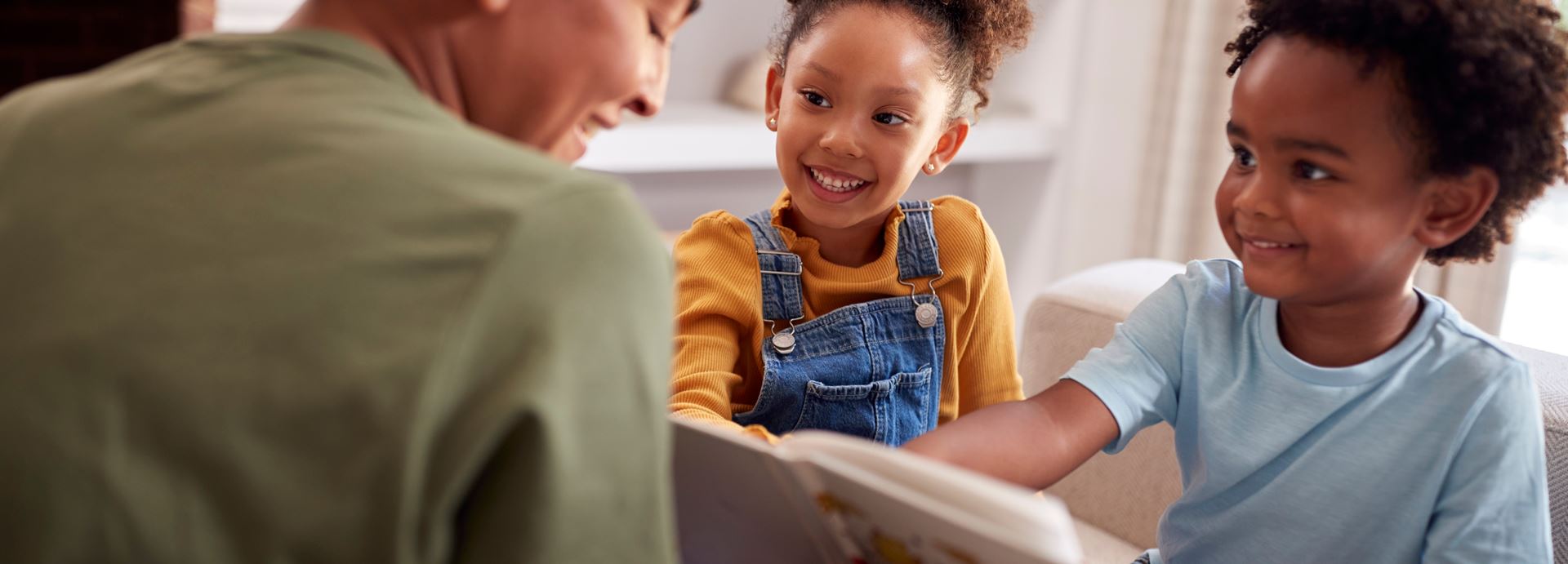Why are siblings separated in foster care?
If you’ve ever wondered ‘do siblings get separated in foster care?’, the answer is sadly, yes. In fact, in more than 200 UK local authorities, over half of sibling groups in care are separated. When you think about the trauma these children have been through – having been removed from their birth home due to neglect, abuse, violence, death or illness – the added loss of being separated from their brother or sister can exacerbate their already vulnerable state.
At Fosterplus, we will always try to place brothers and sisters with the same foster family, however it’s not always possible for a number of reasons.
A national shortage of foster parents in the UK
This is the sad reality we are faced with. Finding suitable homes for a single child is becoming more challenging as the number of young people in care rises year on year. This means it’s not always possible to prioritise keeping siblings together. Instead, the priority is to get these vulnerable children into safe, secure homes, even if they have to be separated from their siblings.
Foster parents don’t have enough bedrooms
One of the main legal requirements for becoming a foster parent is that you have a spare bedroom, as any child in care over the age of 3 must have their own room. Unfortunately, many people just don’t have the space to accommodate more than one foster child at a time, let alone multiple brothers or sisters. While exceptions can be made, such as same-sex siblings under 10 sharing a room, or if the room is large enough for separate beds or bunk beds, it’s not guaranteed. It’s down to the Local Authority (LA) to decide if foster siblings can share a room.
The siblings have an unhealthy relationship
Sibling squabbles are part and parcel of growing up with a brother or sister, however this can exacerbate when children have endured abuse, neglect and other types of adverse childhood experiences. If they’re exhibiting violent or bullying sibling behaviour towards one another, this can be a reason for the separation of siblings in foster care, due to it being deemed in their best interests to be placed in different foster homes.
One of the siblings has specialist, complex needs
It’s vital that children and teenagers with additional needs are placed into foster homes that can provide the specialist care they require. While all of our foster parents are highly skilled and supported by a large team of professionals, not everyone has the capacity to care for a child with complex needs. The welfare of each child is our main priority, so it’s not uncommon for a child with complex needs to be to be placed into a different home for the sake of their wellbeing.
Negative effects of separating siblings in foster care
The relationship of siblings is incredibly unique. Siblings often have a strong bond with each other, especially if they've experienced trauma or difficult situations together. When siblings are separated, they may feel a sense of loss or grief, which can lead to feelings of depression or anxiety. They may also struggle to form new relationships with their new foster families or peers, which can further exacerbate these negative feelings. Here are some of the effects of separating siblings in foster care:
- Emotional distress. Separating siblings can have a significant emotional impact on children in foster care. Siblings often share a special bond and have a deep sense of connection with one another, especially if they have gone through traumatic experiences together. Being separated from their siblings can lead to feelings of sadness, grief, loneliness, and even depression. Children may also struggle to form new relationships with their new foster families and peers, which can further exacerbate their negative feelings. It’s common for children to worry about the safety and wellbeing of their brother or sister too, increasing their anxiety and preventing them from settling.
- Behavioral challenges. Sibling separation in foster care can also lead to challenging behaviour, such as acting out, aggression, and defiance. These behaviors can be a result of the stress and trauma caused by not having their brother or sister by their side, and may be a way for children to cope with their feelings of loss and sadness.
- Academic struggles. Separating siblings can also have a negative impact on a child's academic performance. Children may have difficulty adjusting to new schools and new routines, which can lead to missed opportunities for extracurricular activities or socialisation. They may also struggle to focus and concentrate in class due to the emotional distress caused by the separation from their siblings.
- Difficulty in family relationships. Children who are separated from their siblings may also have difficulty forming close relationships with their new foster families. They may feel disconnected and isolated from their new families, which can lead to feelings of rejection and abandonment. This can make it difficult for them to trust and build relationships with others in the future.
- Long-term consequences. Research has shown that siblings being separated in foster care can have long-term negative consequences. Children who are placed into a different home from their siblings may be at a higher risk of mental health problems, substance abuse, and involvement with the criminal justice system. They may also struggle with forming healthy relationships in adulthood due to the separation they experienced while in care.
"Over 12,000 children in care have been separated from at least one of their siblings" - The BBC
Check out our infographic Siblings in care: The facts & figures
Why keeping siblings together in foster care is so important
Being placed into foster care is a scary and daunting time for children. They are confused and potentially dealing with a lot of emotional trauma due to their turbulent pasts. Having their brother or sister by their side is an important security blanket for them as it makes facing the world – and foster care – a little bit easier to deal with. When this attachment is disrupted, it can have devasting consequences that don’t result in the best outcomes, which is why we need more people to consider fostering siblings to end this damaging cycle. Here are the main benefits of placing siblings together:
“Being able to keep the two girls together has made the world of difference, they’ve flourished together over the last five years and it’s been wonderful to see.” - Denise, Fosterplus foster parent

#KeepingThePromise to keep siblings together
'The Promise' is a Scottish Government initiative that aims to improve the lives and experiences of children and young people in the care system. Part of The Promise is focused around keeping siblings together for the sake of their wellbeing and maintaining those vital family connections.
Fosterplus is committed to #KeepingThePromise through carefully matching sibling groups with foster parents who can meet their individual needs and provide a loving home for as long as it's needed. Wherever possible, we will always try to ensure brothers and sisters are placed together, and our team is dedicated to making it happen.
Please make sure you read our terms and conditions because you're agreeing to them by submitting an enquiry. It's also worth reading our privacy policy and cookies policy so you understand how we collect and use your personal data. This site is protected by reCAPTCHA and the Google Privacy Policy and Terms of Service apply.
Who can care for siblings?
If you’ve got the space, energy, time and dedication to help siblings through a difficult time in their life, we’d love to hear from you. You may have empty nest syndrome and want to fill your home with the love and laughter of children, or you might have grown up with siblings yourself and understand the importance of maintaining that bond. Whatever the reason is, it’s an admirable job to undertake, and if you decide to foster with Fosterplus, we can guarantee that you’ll receive the support you need to overcome any challenges and establish long-lasting relationships with the children you care for.
Could you give siblings a loving home?
We’re always looking for more foster families to give siblings the chance to thrive in a healthy, happy environment with each other. Please get in touch to learn more about fostering siblings and whether it could be your next best decision.
